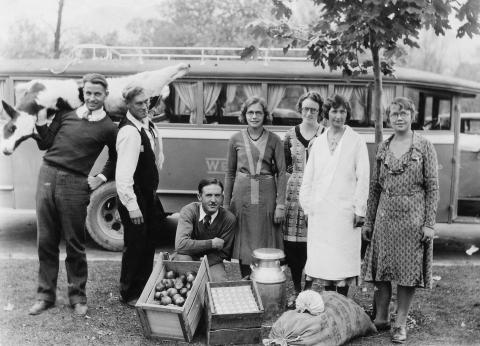Great Depression in Weber County

The Great Depression in Weber County, Utah, is an Oral History Project by Mack S. Taft for completion of his Master’s Thesis at Utah State University during the summer of 1969. The forty-five interviews address the Great Depression through the eyes of individuals in several different occupations including: Bankers, Laborers, Railroad Workers, Attorneys, Farmers, Educators, Businessmen, Community and Church Leaders, Housewives, Children and Physicians. All of these individuals lived in Weber County from 1929 to 1941. The interviews were based on what they remembered about the depression, how they felt about those events and how it affected their life then and now.


